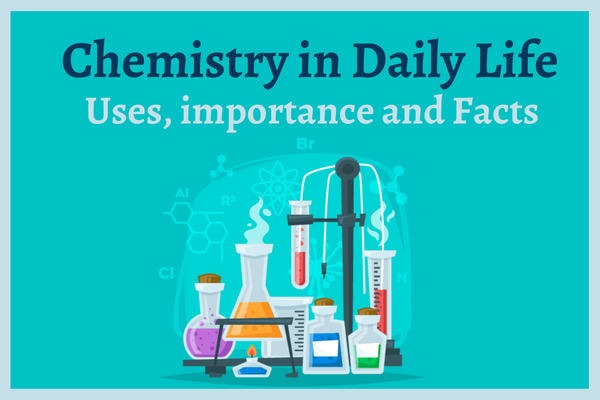Chemistry is often seen as a complex and abstract science that is limited to laboratories and research facilities. However, the truth is that chemistry plays a crucial role in our daily lives, whether we are aware of it or not. From the food we eat to the medicines we take, chemistry is everywhere around us.
Food and Nutrition
One of the most prominent ways in which chemistry affects our daily lives is through the food we consume. The process of cooking involves numerous chemical reactions that transform raw ingredients into delicious dishes. For example, the Maillard reaction is responsible for the browning of meat and bread when they are cooked at high temperatures.
In addition, understanding the chemistry of food can help us make healthier dietary choices. For instance, knowing the difference between saturated and unsaturated fats can help us choose the right cooking oils to reduce the risk of heart disease.
Medicine and Healthcare
Chemistry also plays a vital role in the field of medicine and healthcare. Pharmaceutical companies rely on chemistry to develop new drugs that can treat various illnesses and diseases. Chemists study the chemical structure of molecules to understand how they interact with the human body and produce the desired effects.
Chemistry is also crucial in the field of diagnostics, as medical tests rely on chemical reactions to detect the presence of certain biomarkers in the body. From blood tests to MRI scans, chemistry is at the forefront of modern healthcare technologies.
Personal Care Products
Many of the personal care products that we use on a daily basis, such as shampoo, soap, and sunscreen, are made possible by chemistry. Chemists work tirelessly to develop new formulations that are effective and safe for use on our bodies. They carefully consider the chemical composition of these products to ensure that they provide the desired benefits without causing harm.
For example, the use of surfactants in shampoo helps to remove dirt and oil from our hair, while emollients in moisturizers help to hydrate and protect our skin. Chemistry allows us to enjoy these products with confidence, knowing that they have been meticulously tested for safety and efficacy.
Environmental Impact
Chemistry also plays a significant role in how we interact with the environment. Understanding the chemical processes that contribute to air and water pollution can help us develop strategies to mitigate their harmful effects. For example, chemists are developing new technologies to capture and store carbon dioxide emissions from industrial processes to reduce greenhouse gas emissions.
Furthermore, chemistry is essential in the development of sustainable energy sources, such as solar panels and fuel cells. By harnessing the power of chemistry, we can create a cleaner and more sustainable future for generations to come.
Conclusion
In conclusion, the role of chemistry in our daily lives cannot be overstated. From the food we eat to the products we use, chemistry influences almost every aspect of our existence. By understanding and appreciating the impact of chemistry, we can make informed decisions that improve our health, protect the environment, and promote sustainable living. So the next time you reach for a product or take a medication, remember that chemistry is working behind the scenes to make it all possible.
